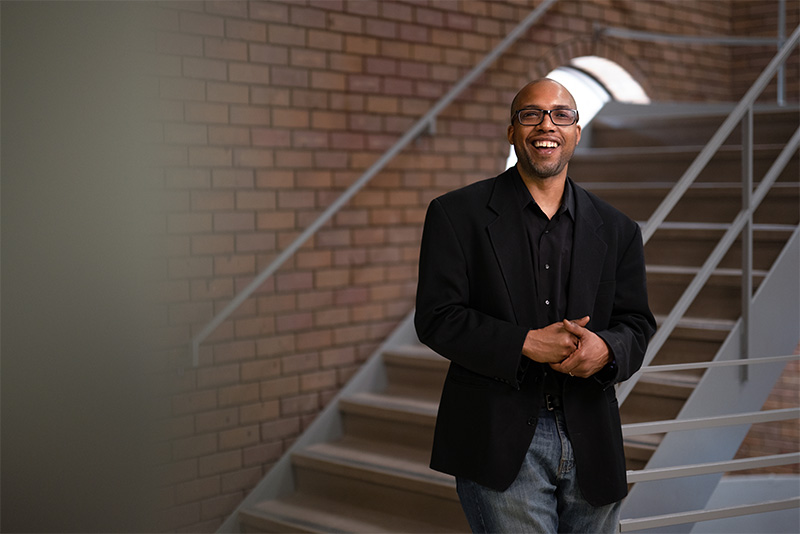Experts with the Regional Gun Violence Research Consortium (RGVRC) address different facets of firearm violence from a variety of perspectives and disciplines. In this new series, get to know our experts and learn more about their contributions to better understand, prevent, and respond to the public health crisis of firearm violence. Meet Christopher St. Vil, a member scholar with the RGVRC and an assistant professor of social work at the University of Buffalo, SUNY.
Why do you study gun violence? Why is this an important area of research, and how do you see your work helping to address this issue?
My trajectory in gun violence research stems from my interest in black male victimization. Black males from marginalized communities are more likely to experience victimization, trauma recidivism, homicide, and post-surgical complications as a result of firearms in comparison to their racial counterparts. Due to the disproportionate impact of firearms on this demographic, gun violence research naturally overlapped with my population of interest.
From a social work framework, the disproportionality of gun violence on black males renders them a uniquely vulnerable population. As a result, social work research on gun violence seeks to implement, pilot, and evaluate evidence-based and trauma-informed interventions, on meso/macro and micro levels, that address risk factors for violence on a general level as well as firearm-related violence more specifically. Additionally, social work research seeks to contribute to policy solutions concerning gun violence, both from the criminal justice perspective and the public health perspective with respect to victim assistance.
What is your research focus related to gun violence? What are you currently researching?
Currently, my research focuses on the impact/role of credible messengers/hospital responders on violence interruption. I just completed a three-year funded project that led to greater coordination between a community-based violence intervention program and its hospital-based counterpart.
What do you hope that people can take away from the research you are conducting?
I hope that credible messengers/hospital responders have an impact and play a significant role with regard to increasing the uptake of services, especially among the black male demographic. However, institutionalized and consistent support and training are needed to fully exploit their unique contribution to social service agencies. The institutionalized support and training must be offered within a context that builds on the credible messenger/hospital responders’ indigenous skills. Social workers have an ethical responsibility to center the enhancement of the skills of the credible messenger/hospital responder and decenter their professionalization.
Learn more about Christopher and his work for the Regional Gun Violence Research Consortium below.

